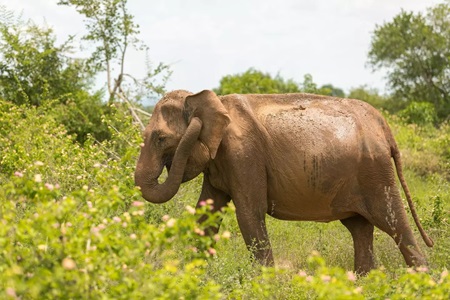The initiative supports projects that leverage satellite technology, machine learning and community engagement to protect vulnerable species and habitats.

Airbus Foundation has announced that the Satellites for Biodiversity Award is back for its third edition, aimed at leveraging advanced satellite imagery with resolutions of up to 15 cm to address wildlife loss and enhance habitat preservation in light of the impending sixth mass extinction.
This initiative is a collaboration between the Connected Conservation Foundation (CCF) and the Airbus Foundation, inviting innovative proposals from individuals and non-profit organisations. Participants are encouraged to utilise very high-resolution (VHR) satellite data, combined with machine learning and community engagement, to monitor and protect some of the Earth’s most vulnerable species and environments.
The award will honour three exemplary projects, granting access to Airbuss Pléiades and Pléiades Neo satellites, which provide exceptional detail at 30 cm and, for the first time, at 15 cm resolution. This level of precision enables insights, including tracking elephant migrations and identifying human activities that threaten ecosystems.
In addition to satellite access, winners will receive complimentary ArcGIS Pro software from ESRI for advanced mapping, visualisation, and analysis, along with $6,000 in funding and ongoing support and mentorship from the Connected Conservation Foundation. This support will enhance their ability to create, analyze, and share critical spatial data for their conservation initiatives.
Previous winners have showcased the transformative potential of satellite technology, with projects focused on protecting chimpanzee habitats in South Sudan and conserving Andean Bears in Peru.
Applications for the award are open globally, targeting projects that promote human-wildlife coexistence, influence sustainable land-use practices, and shape conservation policy.
Sophie Maxwell, Executive Director of the Connected Conservation Foundation, said: “At a time when the health of our planet is more fragile than ever, were driving the integration of satellite technology, machine learning and local community-led knowledge to protect our most vulnerable species and ecosystems.
“For the first time, we can capture landscape imagery at an extraordinary 15cm resolution, providing field projects with unparalleled detail and insights into the factors affecting animal populations and ecosystems globally. This innovation gives researchers crucial data on factors affecting threatened species and changes in their habitats.”
Hania Tabet, Head of Social Value and Airbus Foundation Director, added: “Building on the positive response to the previous editions, we are delighted to launch this third round of the Satellites for Biodiversity award. Our valued partnership with CCF enables us to pursue our global mission to leverage relevant data, tools, technologies and training for positive social and environmental impact.
“Through the Satellites for Biodiversity award, we strive to support projects acting for the protection of endangered species and their habitats across multiple geographies. Additionally, the Satellite for Biodiversity award also plays a crucial role in supporting policy advocacy and facilitating knowledge sharing.”










































































